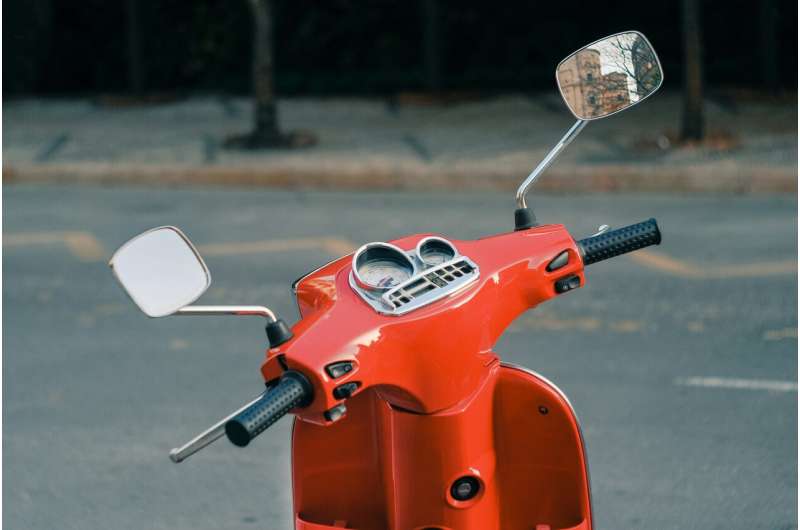

Researchers have put in place smart parking set-ups that offer residents across Europe cleaner air, more greenery and space to play.
When the makeover of Piazza del Popol Giost is completed this December, residents of Reggio Emilia will find themselves strolling through a tree-lined, pedestrianized square that until recently was just a car park. The overhaul of the 1,300 m2 piazza is part of the northern Italian city’s broader sustainable urban mobility planning and was supported by a team of researchers from 18 countries across Europe.
As part of a four-year research collaboration called Park4SUMP, the researchers worked together to bring similar benefits to cities across the continent. They were motivated by a shared belief that intelligent parking management is critical to making cities both more attractive and safer for citizens.
Sustainable mobility
Resolving urban parking issues—a sore point in most cities today—is a key part of the Sustainable Urban Mobility Plans (SUMPs), an EU-wide initiative that aims to benefit the environment and residents. In Reggio Emilia, work is underway to make permanent changes to the square’s layout. Drawing on the know-how of the research team, it has proceeded gradually, starting with part-pedestrianization and then a complete ban on cars.
“This is an important part of our general strategy for improving the quality of life in Reggio Emilia,” said Alberto Merigo, an engineer and mobility planner for the city of around 170,000 people.
The European Commission is encouraging municipal authorities to put SUMPs in place across Europe to help tackle challenges such as traffic congestion, air and noise pollution, and road safety. The intention is to instigate new trends in mobility that help reduce the number of cars on the streets, such as car-sharing schemes and a shift away from individual car ownership.
Smart methods for smarter parking
One of the initiative’s key contributions was the development of a specific method for auditing municipal parking strategies called ParkPAD.
ParkPAD helps local authorities better understand the situation and identify what can be improved by using online questionnaires, data analysis and workshops, led by a local auditor in the local language. It also provides concrete proposals through an action plan tailor-made to local needs.
With more than 20 years of experience working on sustainable transport projects, Patrick Auwerx, coordinator of Park4SUMP and project leader at Belgian sustainable mobility NGO Mobiel 21, has supervised a dozen parking audits in towns and cities in Belgium, the Netherlands and Albania.
According to Auwerx, despite many longer-term benefits, changing a city’s parking set-up is not always easy.
“In people’s minds, parking is a very emotional subject. They often seem to think that when they buy a car, they get a free parking space,” he said.
Politicians don’t like to change parking regulations in favor of sustainable mobility because they fear voters’ reactions, acknowledged Auwerx.
“It can be very difficult to discuss parking with stakeholders and citizens. We provided data to rationalize these discussions.”
The ParkPAD method played a vital role, helping participant cities to find a way forward and ensure that everyone agrees to implement changes through consultation and citizen involvement.
Changing parking habits
Instead of focusing on infrastructure, the researchers concentrated on parking behavior.
“Working on parking infrastructure is the old way of looking at parking policy,” said Auwerx. One of the researchers’ aims is to showcase how great streets are when there is more room for people instead of cars.
“Building new car parks often means parking oversupply, which of course attracts more cars,” said Auwerx. “We wanted to break this vicious circle, with push-and-pull measures that make people think about whether they still need to use their own car or can instead take public transport, or cycle.”
The positive knock-on effects of well-thought-out parking policies are significant and support the EU’s long-term climate goals, including the Cities Mission for 100 climate-neutral and smart cities by 2030, and the broader European Green Deal.
Not only will cities be cleaner and safer, but researchers predict that housing prices will go down because developers no longer need to factor in so many parking spaces.
Replacing heat-retaining concrete or asphalt parking spaces with greenery is also one of the best ways to fight high temperatures in cities, which has become a more pressing issue in recent years due to climate change.
Spreading smart parking across Europe
The research team led by Auwerx worked with a group of 16 cities of varying sizes across Europe, including Freiburg in Germany, Lisbon, Sofia, Trondheim in Norway and Spain’s Vitoria-Gasteiz. Since the project ended in August 2022, the concept is being rolled out in more European cities.
Participants were divided into “leading cities,” those with sophisticated parking strategies already in place, and “learning cities” that do not yet have a formalized parking plan. The sharing of information and best practices helped participants to build on positive experiences.
Back in Reggio Emilia, the step-by-step transformation of its Piazza del Popol Giost is continuing, but has already improved the quality of life in the neighborhood, Merigo said.
“When the site is finished, it will be a really beautiful place, with space to rest, trees and fountains. And the restaurants will have some permanent space for their customers. Park4SUMP played an important role in the transformation of the square and we hope it will inspire similar improvements in other neighborhoods,” he said.
Provided by
Horizon: The EU Research & Innovation Magazine
This article was originally published in Horizon the EU Research and Innovation Magazine.
Citation:
Breathing space—smart parking policies improve city dwellers’ lives in EU (2024, October 18)
retrieved 18 October 2024
from https://phys.org/news/2024-10-space-smart-policies-city-dwellers.html
This document is subject to copyright. Apart from any fair dealing for the purpose of private study or research, no
part may be reproduced without the written permission. The content is provided for information purposes only.